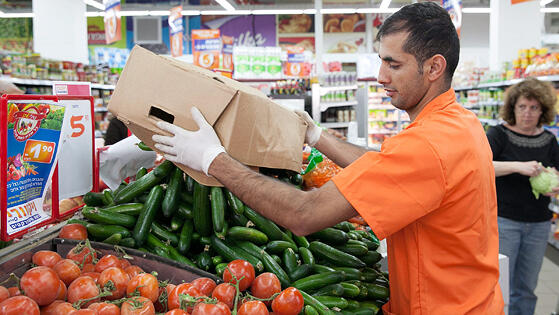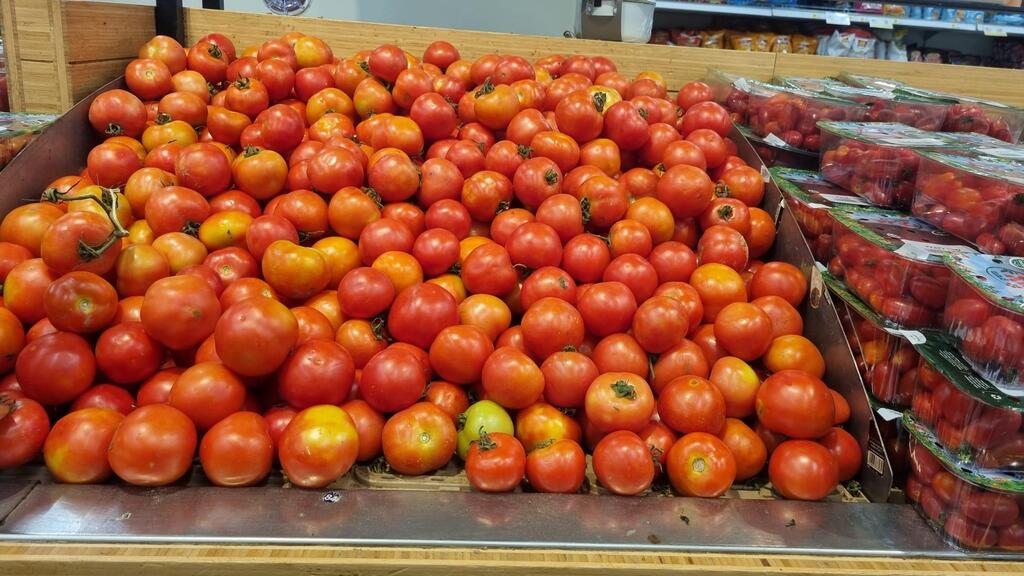The Health Ministry's National Food Service has requested a halt to shipments of fresh vegetables and fruits from Jordan. However, cucumbers, peppers, zucchini and tomatoes from the country are still being sold in some supermarkets.
While no evidence has been found that the shipments from Jordan are contaminated, there is concern due to pollution in the Yarmouk River. Importers have been asked to pause imports, but no directive has been issued to recall products from retail shelves.
According to the Health Ministry, reports from a certified laboratory have indicated positive results for toxigenic Vibrio cholera, detected in water samples from the Yarmouk River at the point of entry into the Yarmouk Reservoir.
These findings suggest a high likelihood of cholera in the upstream drainage area of the Yarmouk and its tributaries, raising concerns that fruits and vegetables from Jordan could be contaminated. Consequently, the Food Service has ordered a halt to shipments pending further information from Jordanian authorities about the water sources used for these crops and to assess the situation based on reports of cholera cases linked to the consumption of contaminated produce.
Why hasn't a recall been issued?
The Food Service believes that the risk of contaminated vegetables reaching consumers is still low. Tests conducted by the Health Ministry on the vegetables themselves did not reveal any contamination, so no recall or public warning to avoid Jordanian produce has been issued.
Imports have been halted until repeated lab tests confirm that the Yarmouk River water has been treated for cholera, or until the Food Service receives information that the areas from which the Jordanian produce originates do not rely on Yarmouk water for irrigation, thus posing no risk. The current imports mainly include tomatoes and cucumbers, along with peppers and zucchini, with olives and dates being imported later in the year.
"Farmers decided not to grow tomatoes this season due to imports from Jordan. In tomatoes, when nighttime temperatures exceed 28°C, the plants don't set fruit. This has always led to lower yields during this period, and to address the shortage imports from Jordan were increased. As a result, many Israeli growers stopped producing," a vegetable farmer told Ynet.
"The agreement with Jordan allows for the duty-free import of 50,000 tons of vegetables annually. This quota is rarely fully utilized, but during the summer months, 6,000 tons-7,000 tons per month are imported duty-free, making it unprofitable for local growers. The government published a support scheme for those willing to grow tomatoes during this period, but few responded," he said.
"If a shortage arises, there are currently 50,000 to 70,000 tons of tomatoes in open fields for industrial use. If there were a severe shortage, it would be worth selling them, but the problem is they don't look appealing, and Israelis prefer premium tomatoes," an industry source said.
A cucumber grower added: "Tomato and cucumber prices have risen by 60%-70% in the past month. The current heat waves severely affect the fruit set of tomatoes, so I stopped growing them during this season. We still grow cucumbers, but there's a high mortality rate among young plants. While Jordan has similar weather, imports from there increase supply. Nationally, we need to strengthen our agriculture to ensure self-sufficiency. We should only rely on imports minimally."
The wholesale price of tomatoes has risen to 6 shekels-8 shekels per kilogram, up from 4 shekels-5 shekels. In stores, they are sold for 5.90 shekels-15.90 shekels per kilogram, with weekly promotions such as 90 agorot per kilogram at Victory, and prices in Jerusalem ranging from 80 agorot per kilogram at Rami Levy stores to 2.90 shekels per kilogram at the Yohannoff supermarket chain. Cucumbers are sold for 4.90 shekels-14.90 shekels per kilogram, with promotions ranging from 1.70 shekels -2.90 shekels.
"As part of routine sampling conducted by the ministry at the Yarmouk River outfall, positive results for cholera bacteria were found. As a precautionary measure, the ministry has temporarily halted imports of fruit and vegetable shipments from Jordan to allow for product testing and verification with Jordanian authorities regarding the water sources used for irrigation," according to a Health Ministry statement.
"It is important to note that cholera bacteria are not present in Israel due to the ministry's ongoing efforts, including regular testing of Yarmouk water entering the country. The Health Ministry is in contact with relevant authorities in Jordan, and any additional information will be reviewed, and appropriate actions will be taken."



